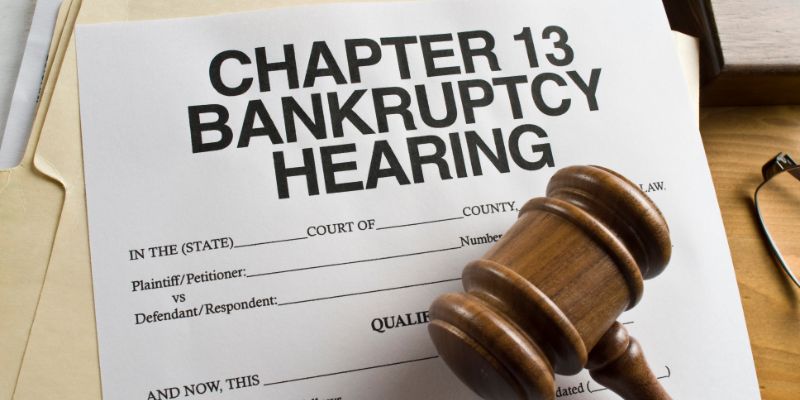There’s never a perfect solution for difficult financial situations. When you need to take substantial steps to deal with financial difficulty, you want to consider all aspects of your options. It may be that a Chapter 13 bankruptcy is the right answer for you. However, that step is something that should never be taken lightly. Chapter 13 can be very helpful for many people, but it’s not a process without some negatives worth considering.
Bankruptcy can be one of the most detrimental items on a credit report. If you file for bankruptcy, your credit report will reflect the bankruptcy beyond when your debts are either paid or discharged. Bankruptcy usually remains on someone’s credit report for seven years but could last up to 10 years. However, it’s possible that the impact of bankruptcy will not be as severe as perpetual missed payments and debt being sent to collections agencies. While there’s no upside to having bankruptcy on your credit report, there are times when it’s one of the only options available.

A Chapter 13 bankruptcy reorganizes debt and establishes a repayment plan. It is meant to allow a debtor to repay creditors in a way that enables the debtor to keep some of their assets. The repayment plans run for three to five years, and it ensures the creditors receive a portion of what they are owed while giving the debtor a chance to improve their situation. Three to five years is not a lifetime, but it can feel like a long time through the Chapter 13 process.
Acknowledging the commitment a debtor makes in a Chapter 13 bankruptcy is important. However, many people find themselves well on the road toward a better financial future at the end of the repayment period.
If you are in a place where you are considering Chapter 13 bankruptcy, there’s no road to a better financial standing that isn’t going to take some time. What’s important is making sure you are on the right road, and Chapter 13 could still be the quickest, most effective way to go.
In the Chapter 13 process, you are primarily addressing unsecured debt. These are things like credit cards and unsecured personal loans. While these kinds of debt may be discharged at the end of the repayment plan, secured and priority debt will still be required to be paid beyond that time. This means things like collateralized debt, alimony, and student loans will generally still be required to be paid in full. However, Chapter 13 may also provide a pathway to getting on a better track with paying these kinds of debt. Whether Chapter 13 makes sense for someone is going to depend on their particular debt situation.
A little less concrete but still a downside of any bankruptcy is the association that comes with the term. There’s no denying that the word has a mental weight to it. Bankruptcy can feel like a failure to people, and that can create a mental burden. There are two problems with that kind of thinking, though.
First, it ignores the mental anguish of feeling overwhelmed by a mountain of debt with no plan to conquer it. Chapter 13 can help provide someone with a plan.
The other problem with thinking of bankruptcy as a failure is that it ignores the purpose of the process. Bankruptcy can be an opportunity for an entity to come out in a better financial position on the other side. Business entities like Marvel, General Motors, and the Chicago Cubs have all used the bankruptcy process to create a better financial position for themselves. The process can do the same thing for individuals. Thinking of bankruptcy as failure is a mistake. It’s often the first step to success.
A: A Chapter 13 bankruptcy will remain on your credit report for up to 10 years from the filing date, even after the debts associated with the bankruptcy have been paid. During this time, it can be difficult to get approved for loans and mortgages. However, the effect on your credit score will diminish with each passing year after the filing.
A: While Chapter 13 is meant to help you eliminate large portions of your debt, many kinds of debt are rarely eligible for discharge at the end of a Chapter 13 repayment period. These include:
A: Chapter 13 reorganizes debt into three to five-year payment plans. During this period, collection efforts are restricted as long as payments are made according to the plan. However, if the payments are missed, creditors may petition to get the case dismissed and resume collection efforts. Creditors may include interest accrued during the bankruptcy period.
A: In Chapter 13, debts are paid out of someone’s disposable income, so whatever is left over after budgeting for necessities such as food, shelter, and healthcare goes toward paying debts. This means the debtor will not have any disposable income for personal use for the duration of the repayment plan.
Chapter 13 does have some downsides, but it also has some hope. For those in circumstances where it makes sense, it can be the springboard to a better financial future. It gives you a plan for how to address your debt and a timeline for when better financial footing can be found. To understand what will be ideal for your situation, you need someone with experience to help you understand where you are and what next steps to take. If you think that sounds like you, contact us at Steele Law Firm today.




